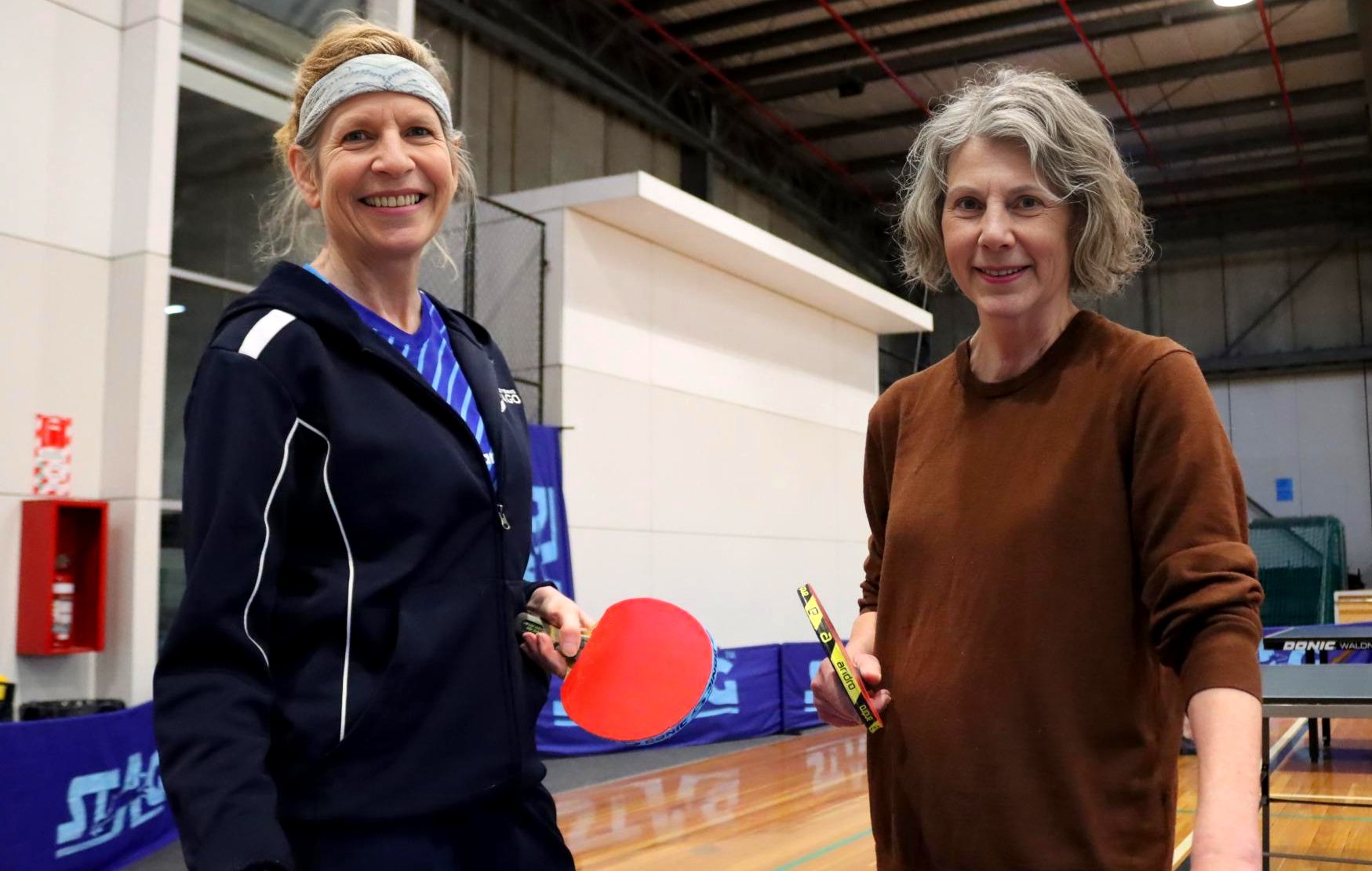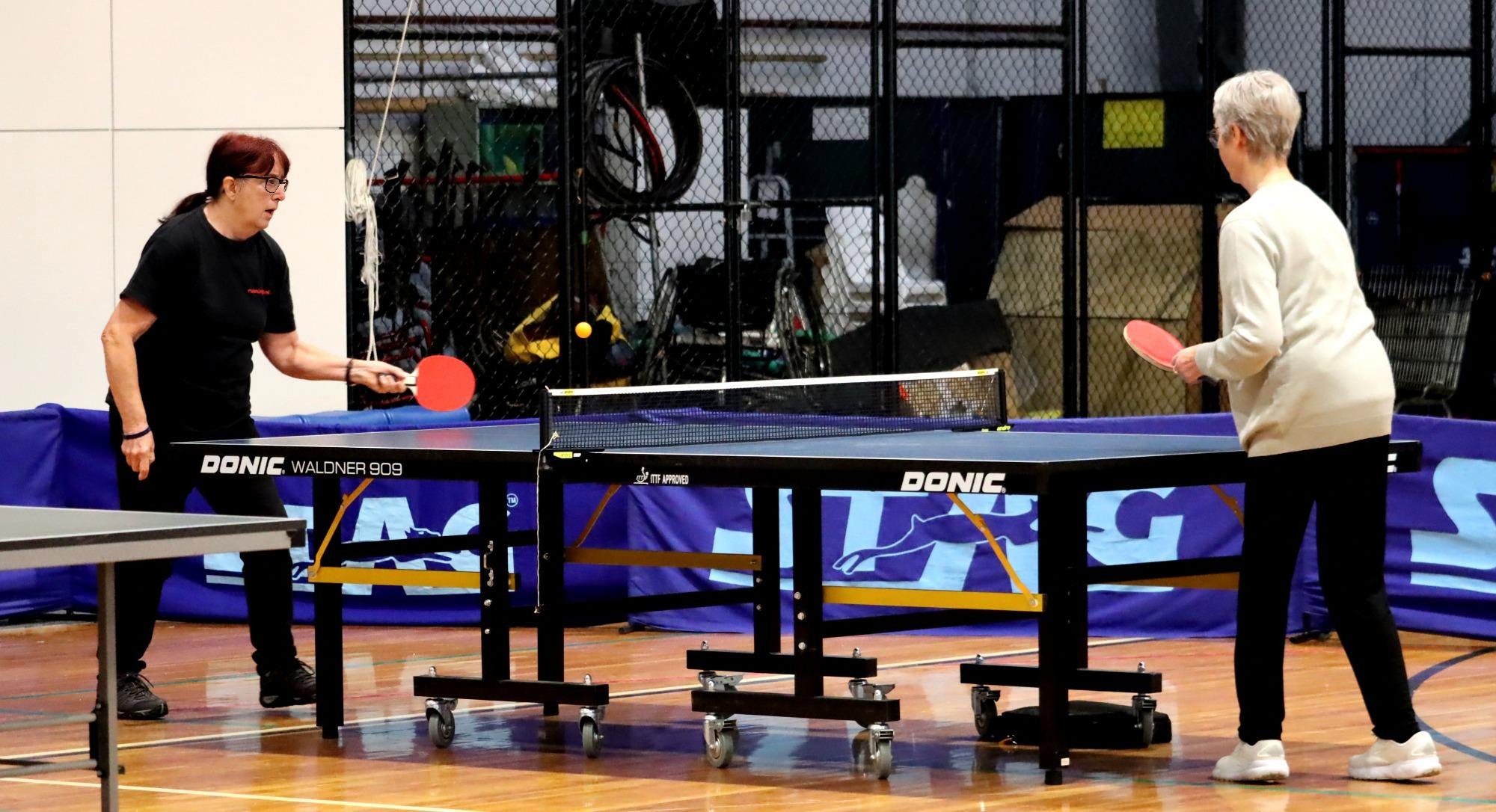
Ping Pong Parkinson is an international movement that aims to alleviate symptoms of Parkinson’s, a progressive neurodegenerative disorder.
While there is no known cure for Parkinson’s, there is some evidence that playing ping-pong (table tennis) can improve motor function.
Just over 30 people are members of the local chapter, which meets weekly for sessions that include stretching and a warm-up before games.
One of the group's star players is Elizabeth Rowe, who won gold in the higher-mobility women's singles at the recent Ping Pong Parkinson's New Zealand national competition and won bronze with fellow Dunedin player Ged Kennedy in the higher-mobility combined doubles.
She was diagnosed with Parkinson’s about seven years ago.
"It was a very mild tremor to start with, but then I went to the neurologist who diagnosed it."
There was a kind of "smorgasbord" of symptoms that could occur with Parkinson’s, she said.
"Everybody has got a different kind of set of things that can happen.
"For me, it is a tremor in my right hand, I have a bit of problems walking sometimes and I have lost a lot of my sense of smell, which is really weird."
She joined the ping-pong group late last year and found it an enjoyable activity not only for exercise but also for connection.

"I find it really helpful in a general sense to do this and it is a really nice bunch of people as well."
The group is led by Prof Liz Franz.
Although she runs it in her own time, Parkinson’s research is also a key part of her work as a professor of neuroscience and psychology at the University of Otago.
She studies how Parkinson’s affects people — not only their movement, but also their thinking and overall wellbeing.
Her research explores whether table tennis training can slow the progression of symptoms and enhance cognitive function.
The sport’s quick pace can reduce stress and anxiety and may help ease negative thoughts.
Because people with Parkinson’s often struggle to make quick decisions, the fast reactions required in table tennis may help train the brain to respond more effectively to rapid tasks, Prof Franz said.
— The Dunedin chapter of Ping Pong Parkinson meets each Friday at the Edgar Centre.
Email franz.liz@gmail.com for details on joining the group.












